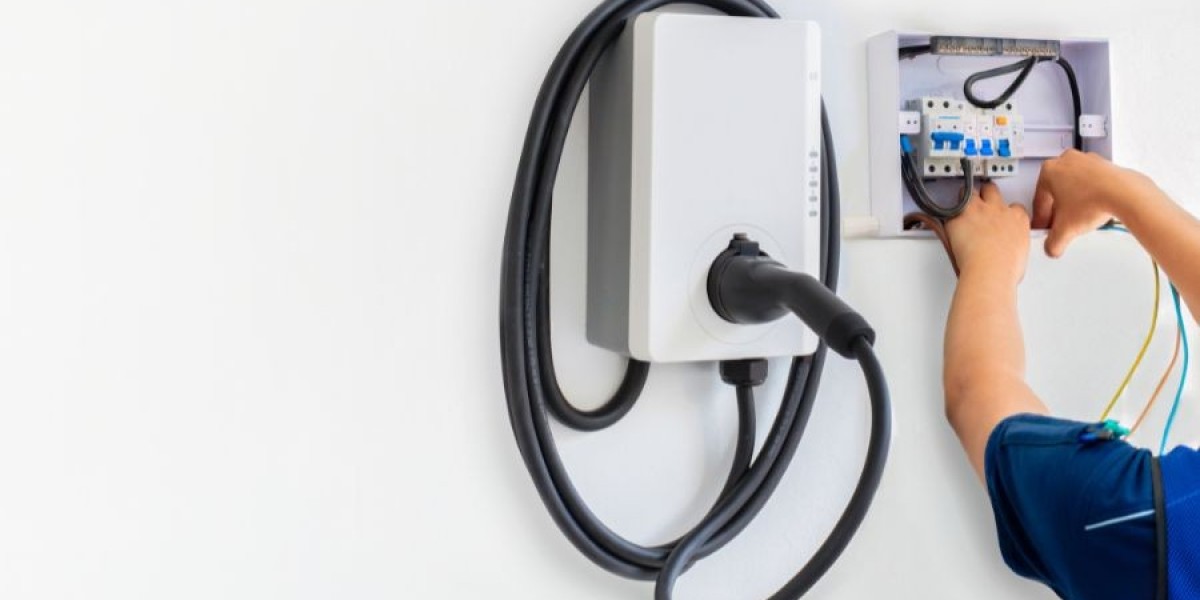With the rise of electric vehicles (EVs) across the UK, many homeowners are looking to install car chargers at home for convenience and cost-efficiency. While EV charging stations might appear simple on the surface, their installation is far more complex than plugging in an appliance. If you’re planning to install a home EV charger, there are several critical things electricians want you to understand before you start.
In this article, we’ll explore what professionals think you should know—before you commit—to ensure your installation is safe, legal, and efficient.
1. Not All Homes Are “Charger Ready”
Electricians regularly encounter homes that need upgrades to handle an EV charger. Most chargers draw a significant amount of power, and older electrical systems—especially in properties built before the 1990s—may not be able to handle the added load.
What You Should Know:
Your home’s existing electrical system must be assessed to ensure it can support the EV charger without overloading circuits.
In some cases, a fuse board upgrade or rewiring may be required.
You may also need a dedicated circuit to prevent interference with other appliances.
An experienced Electrician in Tonbridge or your local area can conduct a load assessment to determine if your property can handle the extra demand safely.
2. Charger Type and Power Output Matters
There are different types of EV chargers, with varying power levels typically measured in kilowatts (kW). A 3.6kW charger might take 10–12 hours to fully charge a vehicle, while a 7kW unit halves that time. Some newer homes can even accommodate 22kW chargers—but these require three-phase power, which isn’t standard in most UK residential properties.
What You Should Know:
Choose a charger that matches your driving habits, battery size, and how quickly you want to recharge.
Discuss options with your electrician—installing the most powerful charger isn’t always necessary or cost-effective.
Future-proofing is important. If you plan to upgrade your EV later, think ahead when selecting charger capacity.
3. Location Is More Than Just Convenience
Where you place the charger has significant implications for installation complexity and cost. Some homeowners want their charger installed in a garage, while others prefer exterior walls or carports. The further the charger is from the consumer unit (your fuse board), the more labour and materials are required.
What You Should Know:
Cable runs over long distances increase installation costs and potential energy losses.
Outdoor installations require waterproof and weather-resistant hardware.
Consider where your car is usually parked and the safest route for the cable to avoid tripping hazards.
Electricians often advise clients to find the balance between convenience and practicality.
4. Grants and Regulations Still Apply
Although some UK government incentives have reduced in recent years, certain grants and tax benefits may still apply—especially for landlords, flat owners, or those installing multiple units. Your EV charger installation must also comply with specific UK regulations, such as the IET Wiring Regulations (18th Edition) and Part P of the Building Regulations.
What You Should Know:
You must notify your Distribution Network Operator (DNO) before installation—this is a legal requirement.
Your charger must be “smart,” meaning it can communicate with the grid and schedule charging during off-peak hours.
If you live in a flat or rent, additional permissions or shared infrastructure solutions might be needed.
A qualified electrician will ensure full compliance and may even help with the grant application process.
5. DIY Installation Is a Serious No-Go
Some homeowners consider installing EV chargers themselves to save money. However, this can be extremely dangerous and is often illegal unless you're certified. Faulty installations can result in electric shocks, fire hazards, and invalid warranties or insurance claims.
What You Should Know:
EV charger installations must be completed by a Part P-registered electrician or company.
Improper installation could damage your vehicle and home, or worse, put your family at risk.
Most charger manufacturers require proof of professional installation for warranty validation.
Always hire a qualified electrician with experience in EV charging systems for your own safety and peace of mind.
Final Thoughts
Installing a home EV charger is a smart move for electric vehicle owners, but it’s not a one-size-fits-all solution. From assessing your home’s electrical system to choosing the right unit, location, and ensuring legal compliance—there’s a lot more to it than meets the eye.
Hiring a professional, like a trusted Electrician Tonbridge residents rely on, ensures that your charger is installed safely, efficiently, and in line with current regulations. It’s an investment that not only protects your home and vehicle but also supports the broader transition to cleaner, greener transport.
In summary, here’s what electricians want you to remember:
Get a full electrical assessment before installation.
Choose a charger that fits your needs—not just the most powerful one.
Think carefully about charger placement.
Follow all local regulations and apply for grants if eligible.
Never attempt a DIY installation.
With the right knowledge and a certified electrician on your side, powering your EV from home can be convenient, cost-effective, and completely safe.






